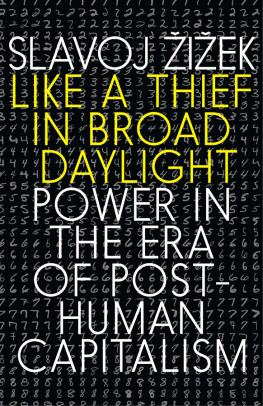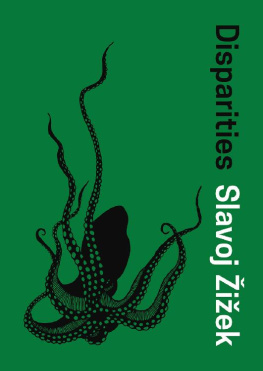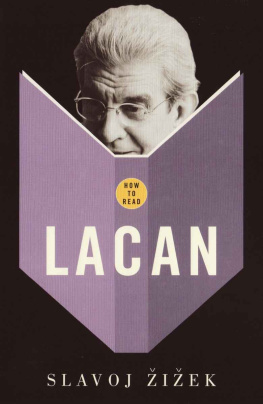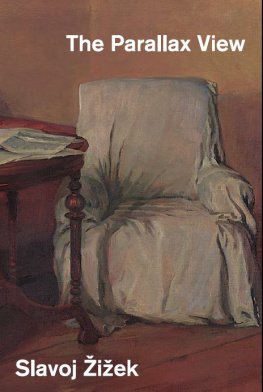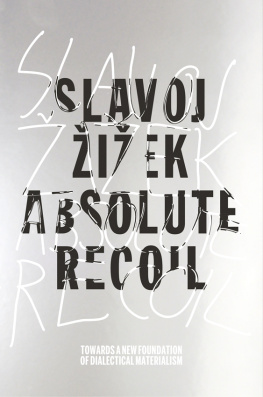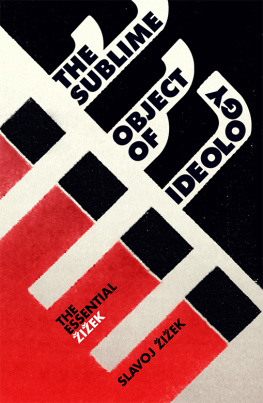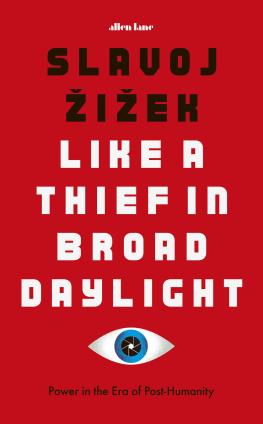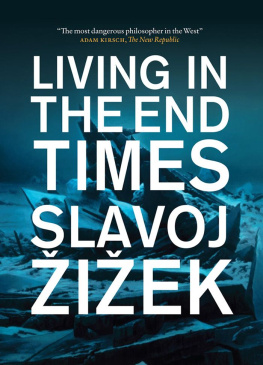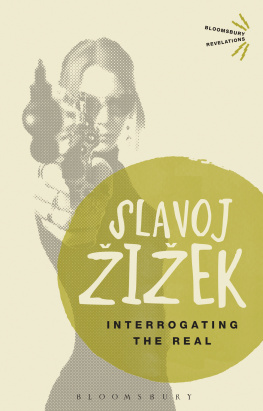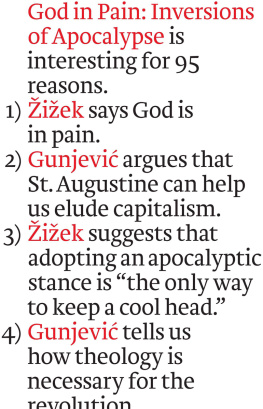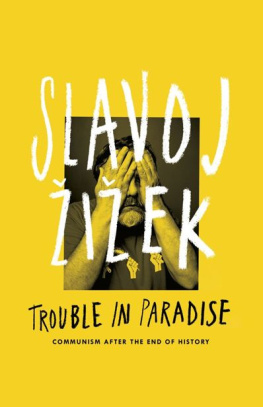All rights reserved. No part of this book may be used or reproduced in any form or by any electronic or mechanical means, including information storage and retrieval systems, without permission in writing from the publisher, except by a reviewer who may quote brief passages in a review.
College professors and high school and middle school teachers may order free examination copies of Seven Stories Press titles. To order, visit www.sevenstories.com, or fax on school letterhead to (212) 226-1411.
Library of Congress Cataloging-in-Publication Data has been applied for.
Printed in the USA.
Introduction: First the Bad News,
Then the Good News... Which
May Be Even Worse
Alain Badious The True Life opens with the provocative claim that, from Socrates onwards, the function of philosophy is to corrupt the youth, to alienate (or, rather, extraneate in the sense of Brechts verfremden) them from the predominant ideologico-political order, to sow radical doubts and enable them to think autonomously. The young undergo the educational process in order to be integrated into the hegemonic social order, which is why their education plays a pivotal role in the reproduction of the ruling ideology. No wonder that Socrates, the first philosopher, was also its first victim, ordered by the democratic court of Athens to drink poison. And is this prodding not another name for evil evil in the sense of disturbing the established way of life? All philosophers prodded: Plato submitted ancient customs and myths to ruthless rational examination, Descartes undermined the medieval harmonious universe, Spinoza ended up being excommunicated, Hegel unleashed the all-destructive power of negativity, Nietzsche demystified the very basis of our morality... even if they sometimes appeared almost as state-philosophers, the establishment was never really at ease with them. We should also consider their counterparts, the normalizing philosophers who tried to restore the lost balance and reconcile philosophy with the established order: Aristotle with regard to Plato, Thomas Aquinas with regard to effervescent early Christianity, post-Leibnizian rational theology with regard to Cartesianism, neo-Kantianism with regard to post-Hegelian chaos...
Is the pairing of Jrgen Habermas and Peter Sloterdijk not the latest incarnation of this tension between prodding and normalization, shown in their reaction to the shattering impact of modern sciences, especially brain sciences and biogenetics? The progress of todays sciences destroys the basic presuppositions of our everyday notion of reality.
There are four main attitudes one can adopt towards this breakthrough. The first one is simply to insist on radical naturalism, i.e. to heroically pursue the logic of the scientific disenchantment of reality whatever the cost, even if the very fundamental coordinates of our horizon of meaningful experience are thereby shattered. (In brain sciences, Patricia and Paul Churchland most radically opt for this attitude.) The second is to make a desperate attempt to move beneath or beyond the scientific approach into some presumably more original and authentic reading of the world (religion or other kinds of spirituality are the main candidates here) as, ultimately, Heidegger does. The third and most hopeless approach is to try to forge some kind of New Age synthesis between scientific Truth and the premodern world of Meaning: the claim is that new scientific results themselves (quantum physics, say) compel us to abandon materialism and point towards some new(Gnostic or Eastern) spirituality. Here is a standard version of this idea:
The central event of the twentieth century is the overthrow of matter. In technology, economics, and the politics of nations, wealth in the form of physical resources is steadily declining in value and significance. The powers of mind are everywhere ascendant over the brute force of things.
This line of reasoning stands for ideology at its worst. The re-inscription of proper scientific problematics (the role of waves and oscillations in quantum physics, for example) into the ideological field of mind versus brute things obfuscates the truly paradoxical result of the notorious disappearance of matter in modern physics: how the very immaterial processes lose their spiritual character and became a legitimate topic of natural sciences.
None of these three options is adequate for the establishment, which basically wants to have its cake and eat it: it needs science as the foundation of economic productivity, but it simultaneously wants to keep the ethico-political foundations of society free from science. In this way, we arrive at the fourth option, a neo-Kantian state philosophy whose exemplary case today is Habermas (but there are others, like Luc Ferry in France). It is a rather sad spectacle to see Habermas trying to control the explosive results of biogenetics and curtail its philosophical consequences his entire endeavour betrays the fear that something will happen, that a new dimension of the human will emerge, that the old image of human dignity and autonomy will survive unscathed. Over-reaction is common here, such as the ridiculous response to Sloterdijks Elmau speech on biogenetics and Heidegger, discerning the echoes of Nazi eugenics in the (quite reasonable) proposal that bio-genetics compels us to formulate new rules of ethics. Techno-scientific progress is perceived as a temptation that can lead us into going too far entering the forbidden territory of biogenetic manipulations and so on, and thus endangering the very core of our humanity.
The latest ethical crisis apropos biogenetics effectively creates the need for what one is fully justified in calling a state philosophy: a philosophy that would, on the one hand, promote scientific research and technical progress and, on the other, contain its full socio-symbolic impact, i.e. prevent it from posing a threat to the existing theologico-ethical constellation. No wonder those who come closest to meeting these demands are neo-Kantians: Kant himself was focused on the problem of how, while fully taking Newtonian science into account, one can guarantee that ethical responsibility can be exempted from the reach of science as he himself put it, he limited the scope of knowledge to create the space for faith and morality. And are todays state philosophers not facing the same task? Are their efforts not focused on how, through different versions of transcendental reflection, to restrict science to its preordained horizon of meaning and thus denounce as illegitimate its consequences for the ethico-religious sphere? In this sense, Habermas is effectively the ultimate philosopher of (re)normalization, desperately working to prevent the collapse of our established ethico-political order:
Could it be that Jurgen Habermas corpus will be one day of the first in which simply nothing at all prodding can be found any more? Heidegger, Wittgenstein, Adorno, Sartre, Arendt, Derrida, Nancy, Badiou, even Gadamer, everywhere one stumbles upon dissonances. Normalization takes hold. The philosophy of the future integration brought to completion.

